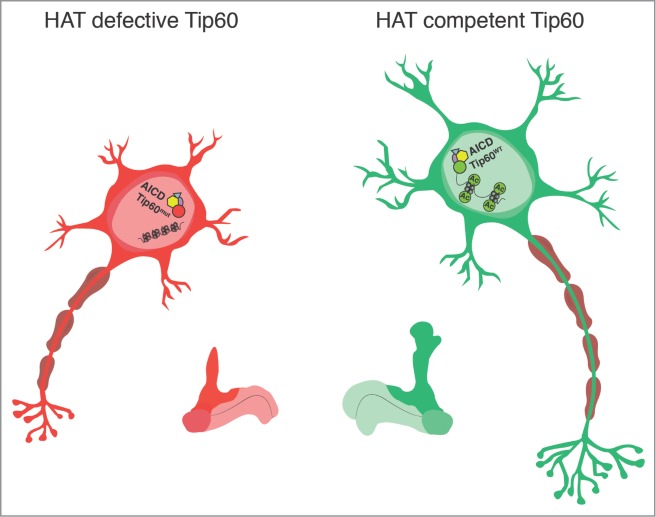Figure 2.

Model for the molecular events underlying rescue of APP learning and memory deficits by Tip60 HAT action under APP induced neurodegenerative conditions. Loss of Tip60 HAT activity (Tip60MUT) disrupts neural epigenetic histone acetylation signatures in the adult Drosophila MB Kenyon cells. Such changes in the chromatin landscape result in repression of cognitive genes, causing impairment of MB axonal outgrowth and synaptic connections with concomitant learning and memory deficits. Increasing cellular levels and/or enzymatic activity of specific HATs like Tip60 under APP neurodegenerative conditions might epigenetically reprogram cognitive gene cassettes that together, function to promote neuroprotection. As illustrated here, under APP induced neurodegenerative conditions, HAT competent Tip60 (Tip60WT) exerts neuroprotective effects either alone, or by complexing with AICD to epigenetically reprogram gene expression profiles via targeted histone acetylation that in turn, protects and/or promotes MB function. Graphic design and illustration of model figure by Cameryn S. Richards.
